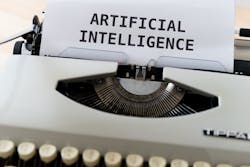Unsupervised AI predicts the progression of COVID-19 from chest images
A research team at Massachusetts General Hospital (MGH) showed that unsupervised deep learning based on computed tomography can provide a significantly higher prognostic performance to assess COVID-19 patients than established laboratory tests and existing image-based visual and quantitative survival predictors.
For each patient, the model can predict the time when COVID-19 progresses and, thus, the time when the patient is admitted to an intensive care unit or when the patient will die. The time information calculated by the model also enables stratification of the patients into low- and high-risk groups by a wider margin than what is possible with other predictors, the hospital contends.
“Our results show that the prediction performance of the unsupervised AI model was significantly higher and the prediction error significantly lower than those of the previously established reference predictors,” says Hiroyuki Yoshida, PhD, Director of 3D Imaging Research at MGH. “The use of unsupervised AI as an integral part of the survival prediction model makes it possible to perform prognostic predictions directly from the original CT images of patients at a higher accuracy than what was previously possible in quantitative imaging.”
In a companion study, the team had already shown that supervised AI can be used to predict the survival of COVID-19 patients from their chest CT images. However, the new unsupervised AI model breaks new ground by avoiding the technical limitations and the laborious annotation efforts of the previous predictors. The use of a generative adversarial network makes it possible to train a complete end-to-end survival-analysis model directly from the images. “It is a much more precise and highly advanced AI technology,” Yoshida explains.

